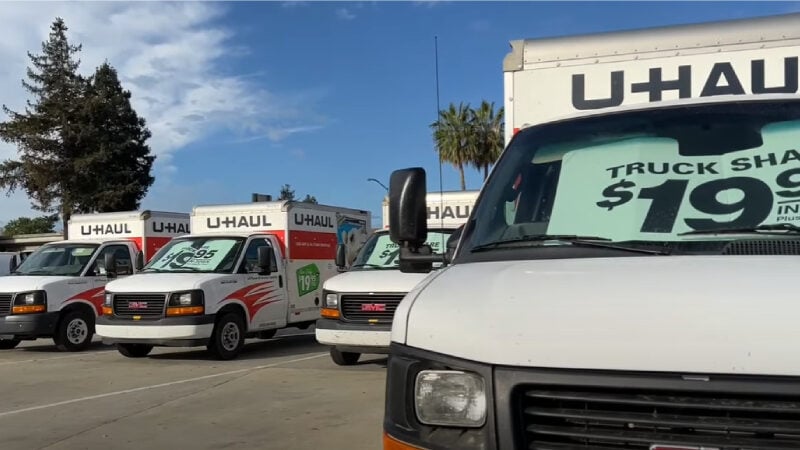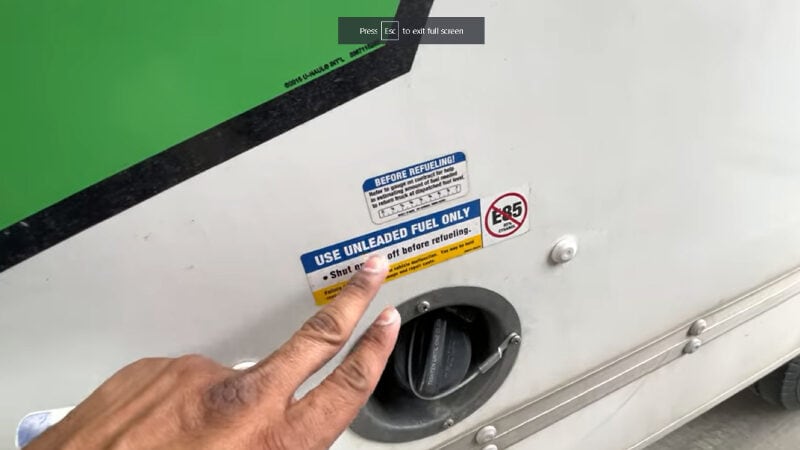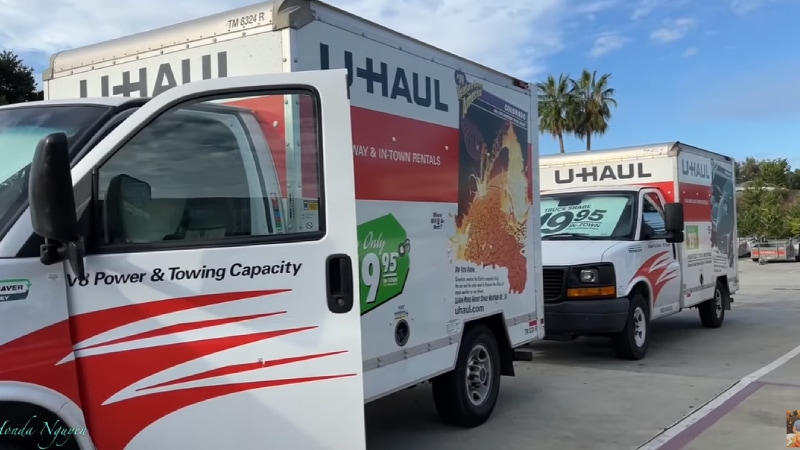The U-Haul is a beneficial tool to have, whether you are moving into a new location or carrying cargo for your business. Hiring one on your own can result in significant cost savings compared to hiring a moving company or moving crew if you know how to operate a moving truck. Truck rentals are not overly expensive.
One of the drawbacks of renting a U-Haul is that you are responsible for putting in the fuel on your own, raising the following question: What fuel do UHaul trucks take? or What kind of gas does Uhaul take?
The vast majority of U-Haul vehicles take unleaded gasoline, although a few diesel-powered models are available. You have the option of purchasing regular or premium gas whenever you refuel the U-Haul
In light of this, this article will find out kind of gas that Uhaul take and how to determine what gas your U-Haul takes.
What Are U-Haul Trucks?
Renting a U-Haul truck is a great way to move your things, whether you’re moving across town or the country. What is a U-Haul truck, though?

A U-Haul truck is a specially made truck for moving. It can be rented from U-Haul locations all over the United States. These trucks are made to make it easier and more convenient to move large items and many things.
What Fuel Do U-Hauls Take?
DoU-Haul take gas or diesel?
Most U-Haul trucks take gas, although a few diesel-powered models are available.
Despite the widespread belief that all moving trucks run on diesel, this has become less true over time. The decision to switch from diesel to unleaded gas is being made by many moving businesses. Instead of diesel fuel, most U-Haul trucks and cargo vans run on unleaded gasoline now.
You can choose a diesel vehicle depending on where you are taking the rental vehicle. This depends on what’s available, and not all places have diesel vehicles.
Most gasoline vehicles are quieter than diesel cars, which is why the industry is moving toward gas vehicles. On the other hand, diesel is cheaper than gas and can appeal to customers.
Since most U-Haul vehicles now run on gas, the chance that a customer will put in the wrong kind of gas has decreased. Back in the day, customers would sometimes get confused and put the wrong kind of fuel in their rental cars. The U-Haul company lost a lot of money because of this.
What Kind Of Gas Does Uhaul Take?
When considering how to refuel your U-Haul, it is essential to consider the various kinds of gasoline available. Regular unleaded gas is one choice that many individuals select to fulfill their fuel requirements. However, you also have the choice to purchase premium gas for your vehicle.
Does U-Haul take regular gas?
Most U-Haul vehicles can run fine on regular gas or premium gas. Regular gas is cheaper than premium gas, which is also good for customers.
Regular gas is also the type of gas that most people use. This makes it impossible to put the wrong gas type in the car.
Most people choose regular gas instead of premium to save money on moving costs. The savings add up, especially if you use the vehicle for long distances.
Does U-Haul take premium gas?
It is also essential to keep in mind that using premium gas instead of standard gas will not cause any damage to the vehicle. The only difference between premium and regular gas is that premium has a higher octane rating.
Additionally, premium gas often burns more slowly than regular gas, which means you can get more miles out of a single tank of premium petrol. Those benefits, unfortunately, come with a more significant price tag attached to them.
Does U-Haul take 87 gas?
Vehicles rented from U-Haul require regular unleaded gas with an octane rating of 87. Premium gas is considered any gasoline with an octane rating over 87.
It is estimated that 87 gasoline is approximately three times more convenient than diesel. In addition to this, it has a significantly smaller negative impact on the environment.
If you rent a U-Haul for short or long travel, switching to petrol with an 87-octane rating will save you money.
How To Determine What Gas My U-Haul Takes?

Larger U-Haul trucks and cargo vans usually run on unleaded gasoline. If you’re still not sure, look for a label on the fuel door or the fuel filler neck.
The label on the fuel door will say something like “Unleaded gasoline only” to tell you what kind of fuel you should use. In this situation, regular unleaded gas should work.
Most vehicles will have a clear sign or label that tells you what kind of gas they take. If you can’t find the label and are unsure, you should call U-Haul. The customer service people at U-Haul will be able to tell you what kind of gas to put in the vehicle. All you would need to give them is information about the customer and the type and make of the vehicle.
You will receive documents regarding the rental agreement along with your rental, and this paperwork might also provide you with guidance regarding the type of gas your rental requires.
If you find yourself in a precarious scenario involving a rented automobile, having this information sheet on hand will come in very handy.
FAQs
What kind of gas does a 10-foot U-Haul take?
U-moving Haul’s truck with a 10-foot runs on regular unleaded fuel, not diesel. Under typical driving conditions, you can travel approximately 372 miles with a full tank of unleaded petrol in a 10-foot U-Haul truck. This is calculated by multiplying 31 gallons by the standard highway mileage of 12 miles per gallon.
How much does it cost to fill up a U-Haul with gas?
The answer to that question depends on how big its tank is. Remember, different size U-Haul trucks have varying size gas tanks. Filling up a U-Haul truck with a smaller tank will be less expensive than filling up one with a larger tank.
For instance, the U-Haul truck that is 15 feet long has a tank that can hold 40 gallons of fuel. Considering that the typical price of a gallon of gas is $2.50, the total cost will come to $100 ($2.50 multiplied by 40).
Do U-Haul trucks have to stop at weigh stations?
Because you are not making a commercial move, U-Haul states that you will probably not be required to stop at a weigh station when you move with a truck you rented from them. Nonetheless, some states mandate stopping non-commercial trucks at weigh stations if they exceed a certain weight threshold, typically over 10,000 pounds.

Helen J. Whiteaker is a journalist with ten years of experience in many fields. She has a degree in journalism from the University of Missouri and has worked in print and online media. She has written for several major publications, including The New York Times, The Washington Post, and The Huffington Post. She has also been a contributor to several lifestyle and travel magazines.
In her work, Helen has always strived to provide accurate and fair coverage of the topics. Whether writing about the latest trends in home decorating or reporting on an important news story, Helen is dedicated to her craft and delivering the best possible information to her readers.
Helen was one of the first people to join ThisIsGuernsey and laid the foundation for the development of TIG. Currently, she holds the position of Editor in Chief, responsible for training and testing writers and coordinating with other departments to bring the best articles to readers.
